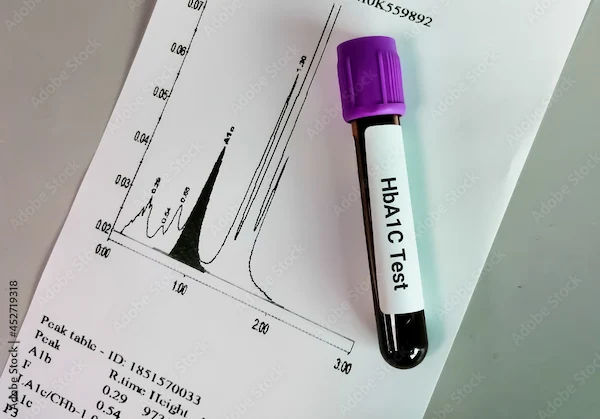Understanding Diabetic Belly Appearance
Discover what causes a diabetic belly, its health risks, and how to reduce abdominal fat through diet, exercise, and better diabetes management.

Written by Dr. Mohammed Kamran
Reviewed by Dr. D Bhanu Prakash MBBS, AFIH, Advanced certificate in critical care medicine, Fellowship in critical care medicine
Last updated on 22nd Jul, 2025

Introduction
Living with diabetes can bring about many changes in your body, one of which may be a noticeable change in your belly shape and size. Often referred to as a "diabetic belly," this condition can be concerning, but understanding why it happens and how to manage it can help you take control of your health.
What is a Diabetic Belly?
A diabetic belly refers to the accumulation of fat around the abdomen, often leading to a rounder or more protruding stomach. This isn’t just about weight gain—it’s closely linked to how diabetes affects your metabolism and fat storage.
Why Does It Happen?
1. Insulin Resistance: In type 2 diabetes, your body doesn’t use insulin effectively. This can lead to fat being stored around the belly rather than being used for energy.
2. Visceral Fat: Unlike fat under the skin (subcutaneous fat), visceral fat surrounds your organs and is linked to insulin resistance and inflammation.
3. Hormonal Changes: Diabetes can affect hormones that regulate fat distribution, making the belly a common area for fat buildup.
4. Medications: Some diabetes medications may contribute to weight gain, including around the midsection.
How Does It Affect Your Health?
A diabetic belly isn’t just a cosmetic concern, it can impact your overall health:
Increased Heart Disease Risk: Excess belly fat is linked to higher cholesterol, blood pressure, and heart disease.
Poor Blood Sugar Control: More belly fat can worsen insulin resistance, making diabetes harder to manage.
Higher Risk of Fatty Liver Disease: Visceral fat increases the likelihood of liver complications.
Signs to Watch For
While weight gain is common, a diabetic belly may also be accompanied by:
A waist measurement of more than 35 inches (for women) or 40 inches (for men).
Difficulty losing weight despite diet and exercise.
Feeling bloated or experiencing digestive discomfort.
How Can You Manage It?
The good news is that with the right approach, you can reduce belly fat and improve your diabetes management.
1. Healthy Eating Habits
Focus on Fibre: Whole grains, vegetables, and legumes help control blood sugar and keep you full.
Limit Sugary and Processed Foods: These contribute to fat storage and blood sugar spikes.
Choose Healthy Fats: Avocados, nuts, and olive oil support metabolism without increasing belly fat.
2. Regular Physical Activity
Aerobic Exercise: Walking, swimming, or cycling for at least 30 minutes daily helps burn fat.
Strength Training: Building muscle improves insulin sensitivity and metabolism.
Core Exercises: While spot reduction isn’t possible, strengthening abdominal muscles improves posture and tone.
3. Stress Management
Chronic stress increases cortisol, a hormone that promotes belly fat storage. Try yoga, meditation, or deep breathing exercises.
Get Your Symptoms Checked By An Endocrinologist
4. Quality Sleep
Poor sleep disrupts hunger hormones, leading to weight gain. Aim for 7-8 hours of restful sleep each night.
5. Monitor Blood Sugar Levels
Keeping diabetes well-controlled helps prevent further fat accumulation.
When to See a Doctor?
If you notice sudden or excessive belly fat, unexplained weight gain, or worsening diabetes symptoms, consult a healthcare provider. They can check for underlying conditions like metabolic syndrome or hormonal imbalances.
Need Help Managing Diabetes?
If you’re struggling with weight or diabetes management, Apollo 24|7 offers expert consultations and personalized care plans. You can book an appointment with a diabetologist or nutritionist to get tailored advice.
Conclusion
A diabetic belly is a common but manageable aspect of diabetes. By adopting a healthy lifestyle, eating well, staying active, managing stress, and keeping blood sugar in check, you can reduce belly fat and improve your overall well-being. Remember, small, consistent changes make a big difference over time!
Get Your Symptoms Checked By An Endocrinologist
Get Your Symptoms Checked By An Endocrinologist

Dr. Narayanan N K
Endocrinologist
16 Years • MRCP (Internal Medicine), SCE (Diabetology & Endocrinology), MRCP (Diabetology & Endocrinology), CCT, Former Research Associate, Cambridge University, Adjunct Professor, MGR Medical University, Tamil Nadu
Chennai
Apollo Hospitals Greams Road, Chennai
(925+ Patients)

Dr. Ravi Sankar Erukulapati
Endocrinologist
17 Years • MBBS, MRCP (UK), CCT- Diabetes & Endocrinology (UK)
Hyderabad
Apollo Hospitals Jubilee Hills, Hyderabad
(275+ Patients)

Dr. Mary Susan K S
General Physician/ Internal Medicine Specialist
13 Years • MBBS, MD INTERNAL MEDICINE
Bengaluru
Apollo Clinic, Sarjapur Road, Bengaluru

Dr. Ramalinga Reddy
General Physician
5 Years • MBBS MD General medicine
Bengaluru
PRESTIGE SHANTHINIKETAN - SOCIETY CLINIC, Bengaluru

Dr. Anand Ravi
General Physician
2 Years • MBBS
Bengaluru
PRESTIGE SHANTHINIKETAN - SOCIETY CLINIC, Bengaluru

